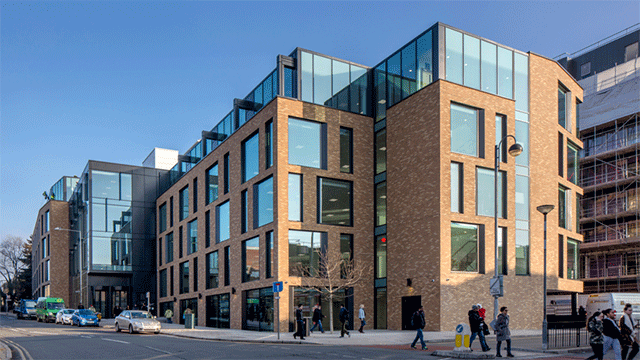COMMENT In the long run-up to a general election, it is simply all too easy for government of any persuasion to decide to pull policy levers here and there, to dabble with what might work and to make grand pronouncements about solutions.
The planning regime is a frequent victim of such and is often subject to “a major shake-up”. It is no surprise that those of us with significant projects ahead tend to react with less excitement than ministers would perhaps expect.
The recent policy announcements are no different. It is absolutely right that the housing crisis should remain a key priority for government, but the solutions are far more complex than the “rocket-boosting” press releases from the Ministry of Housing, Communities & Local Government might suggest.
There is no time to lose. We must unpick the challenges of developing in London if we are to continue to evolve our city with the new homes, workplaces and recreational spaces needed for a thriving global hub.
Every day, we and our partners experience the challenges first-hand, whether it’s a severe lack of infrastructure investment or simply the time taken for projects to traverse the system. Frankly, getting projects off the ground in the capital can now feel like a battle at every part of the process.
Radical action
The planning system is not the only problem. To truly unlock development in London, more radical action is required, starting with a review of all consented, unbuilt projects to gain a thorough understanding of the issues.
We all – whether private or public sector – have a shared ambition to get building again, but we must accept that by the time the London Plan was adopted in 2021, the development landscape in London was really very different. Through no fault of its own, the London Plan has hit bumps in the road as the world around us has changed.
Perhaps the time has come to consider a more pragmatic approach – one built on trust and partnership between local boroughs and developers which have shared ambitions. We all know what bad development looks like, so rather than having to go head-to-head every time to hit centrally set targets, is it not time to allow the experts to assess what’s best for their local area?
When it comes to public land and the requisite 50% affordable housing provision, in so many cases the lack of financial returns means these schemes are simply unfundable, continuing to exacerbate the lack of supply of affordable homes. I would have thought flexibility would be key here, placing an emphasis on delivery rather than trying to tick all the boxes.
We also have a real challenge where public procurement is concerned. Without experience of delivering public sector contracts, it is so difficult to take part in any public procurement process. We have long espoused the value of removing public procurement rules for schemes of fewer than 200 homes – simply an open-market process. How else do we truly democratise the development process, allowing entrepreneurial growing businesses the chance to enter the fray?
Daily concern
Some of the challenges facing us are in our gift to help solve. At Regal London, we have our own integrated construction delivery arm, and so the well-documented problem of construction skills shortages is a daily concern. This was one of the reasons that we set up our Regal London Real Estate Academies, providing construction training and employment pathways to local people alongside men and women leaving the armed forces.
It’s time to accept the planning process will never be perfect, and that all too often it becomes a political football. Let’s try and be a bit braver next time round.
Jonathan Seal is chief executive at Regal London











